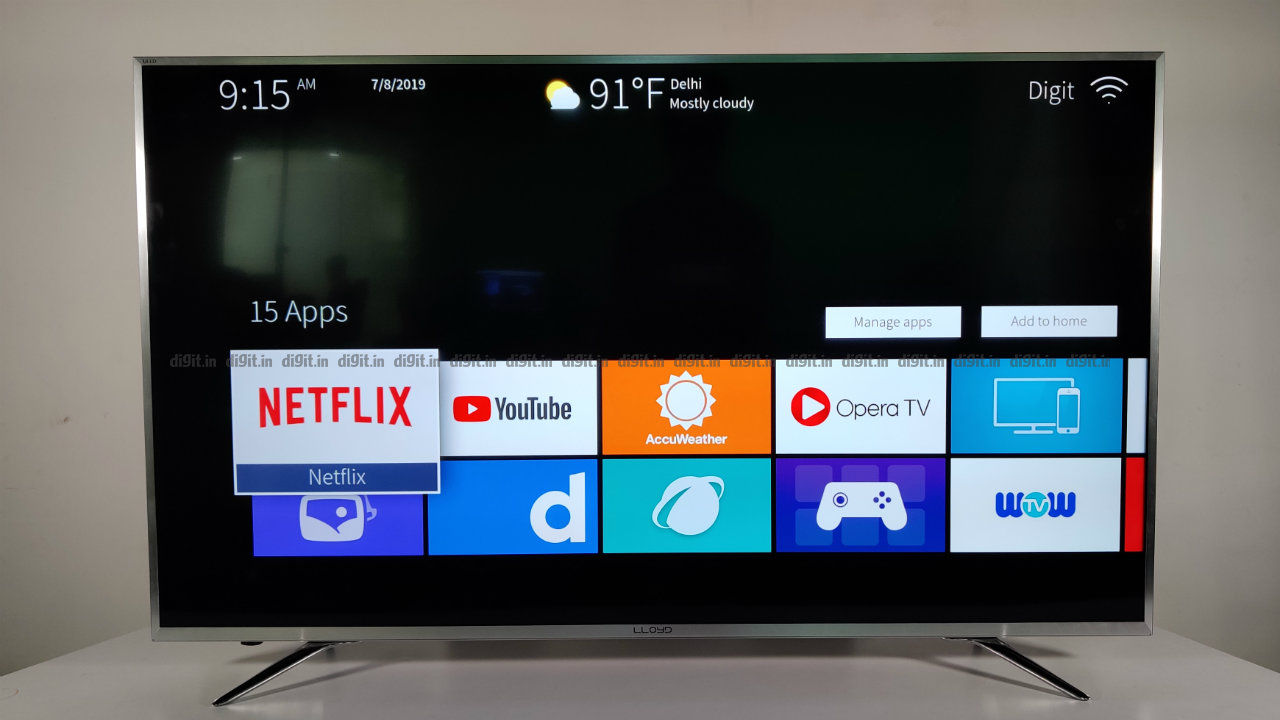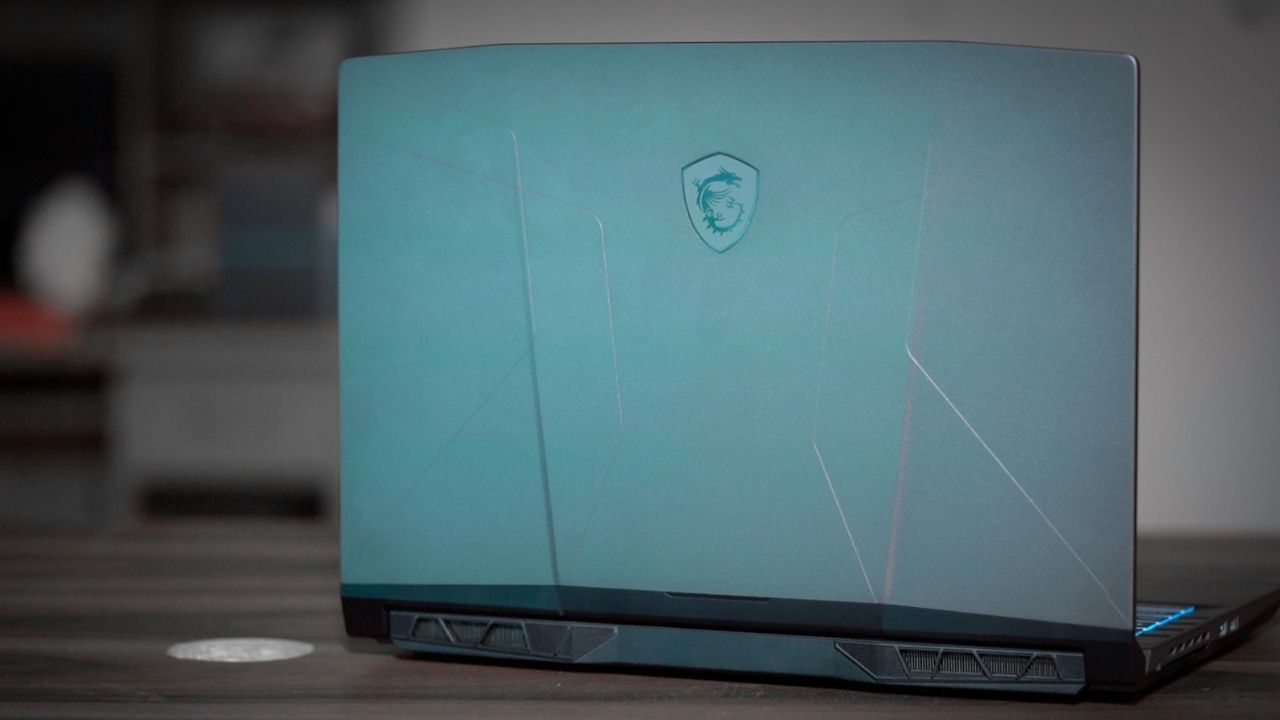
Weston 55 inch Ultra HD 4K LED Smart TV detailed review
There are a good number of 55-inch 4K HDR TVs available in the market today. For a budget of Rs 35,000 to Rs 40,000, you can get a number of TV brands offering 4K and HDR capabilities. We have brands like Xiaomi, Shinco, Kodak, TCL, iFFALCON, Cloudwalker and more fighting for your attention in this space. Each TV brings with it some distinguishing feature to offer you a bang for your buck. For example, Shinco TV has a good panel for consuming content but the Xiaomi has better smart TV capabilities, so on and so forth. Today we have with us a TV from Weston. The 55-inch variant of the is priced at Rs 59,990. This puts it in the mid-range where you can get TVs from brands like Sony, Samsung, Panasonic, LG and more. The TV has features which we have seen on other TVs in the past. Does it deserve your attention?
Key specifications at a glance
Panel Size: 55-inches
Panel Type: VA
Panel Resolution: 3840 x 2160 – 4K
Panel Refresh Rate: 60Hz
HDR 10 support: Yes
Dolby Vision Support: No
HDMI Ports: 3
USB Ports: 2
Bluetooth: No
Wi-Fi: Yes
Ethernet: Yes
Speakers: 2 x 8W
CPU: Cortex A53 Quad Core 1.5GHz
GPU: Mali450 Penta Core 750MHz
RAM: 1GB
Built-in storage: 8GB
OS: Android 7 (AOSP)
Price: Rs 59,990
Build and Design
The build and design of the TV are all too familiar to what we have seen in 35k to 40k price range. In fact, some design elements, like the metal feet are identical to the Shinco and Daiwa TV we tested in the recent past. The only difference is that the feet have a gunmetal grey finish. A very interesting feature about the TV is that it has two placement options for the feet at the bottom. One is the standard placement close to the two ends and the other is slightly closer. So, if your entertainment system or tabletop where you’d like to place the TV is smaller, you may just be able to fit it there because of the narrow feet placement option on the TV.
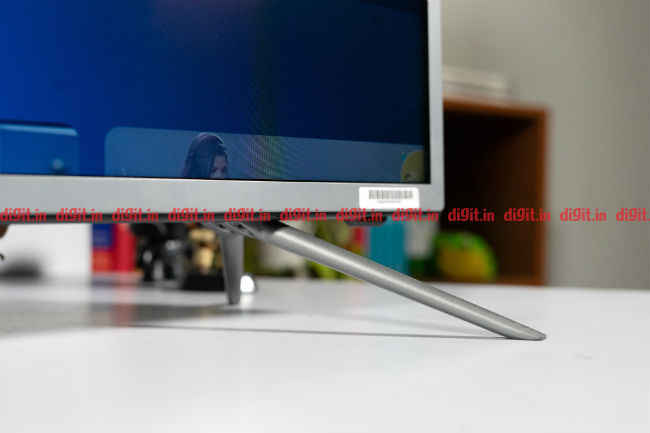
The TV has a gunmetal grey finish on the bezels surrounding the panel giving it a premium look. It’s a nice change from the black borders we have seen on so many TVs. The rear panel of the TV, however, is all black, generic and what we’ve seen in this price range.
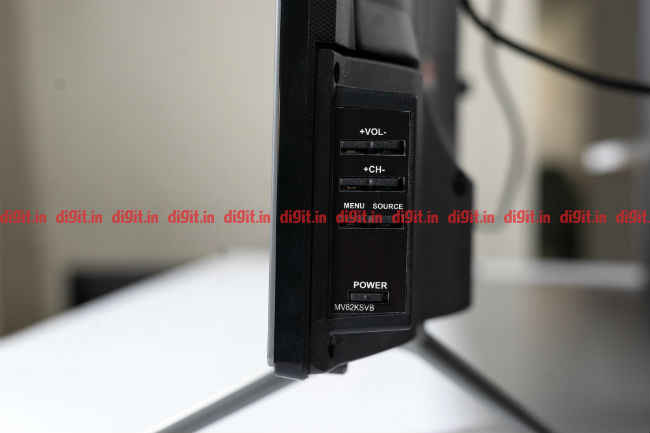
When kept on a tabletop, there is enough place to keep your gaming console below the TV comfortable, something that has been an issue in a lot of TVs we have reviewed recently.
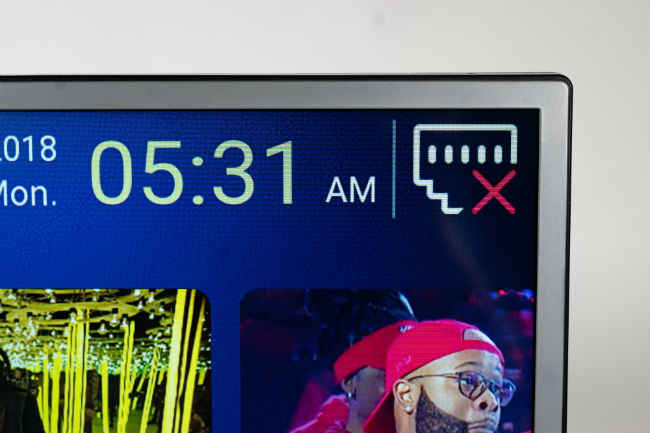
There is really nothing to complain about in the build of the TV. The gunmetal grey finish on the bezels and feet is a welcome change from the standard black and the TV has an overall functional design which is nice.
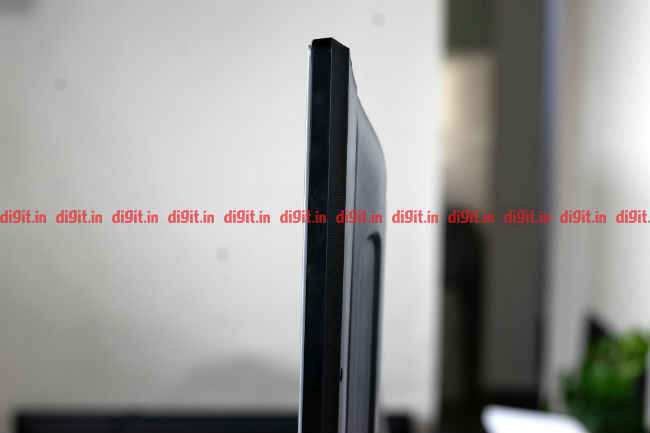
Ports and connectivity
When it comes to connectivity, the Weston 55-inch 4K TV has three HDMI ports of which one is ARC enabled. On the side, the TV has two USB ports, an SD card slot, 3.5mm port, the HDMI 3 port and an optical port. At the back, you have the antenna port, 2 HDMI ports, 2 AV ports and the ethernet port. The power cable is not user removable. On the right of the TV, you have the physical controls. The TV supports Wi-Fi but sadly, no Bluetooth.
The connectivity options are standard with what we have seen in TVs that cost a lot less than the Weston TV.
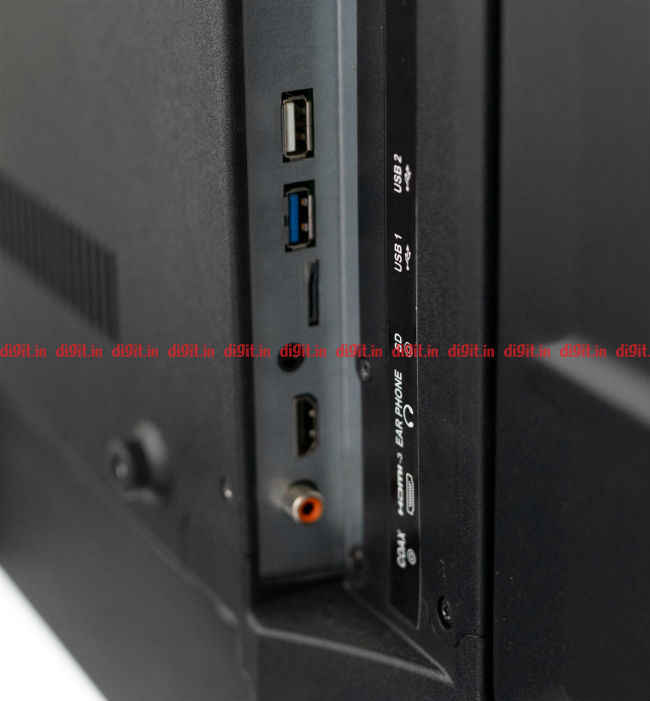
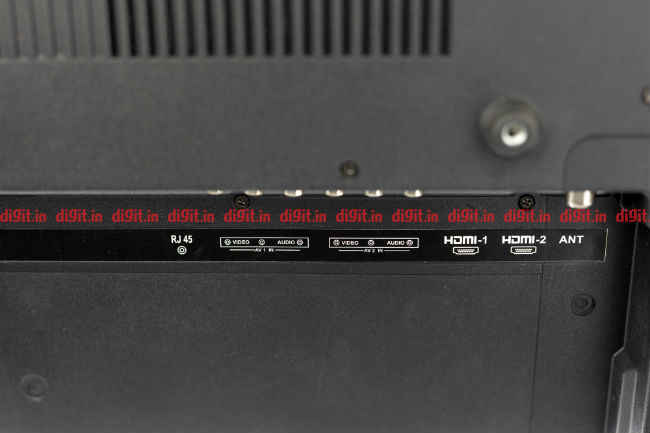
Display and Picture Quality
The Weston 55-inch 4K TV has a 10-bit VA panel that is made by Samsung. Thanks to the 10-bit panel, the TV boasts of 4K capabilities along with HDR 10 support. We believe the panel has a brightness of 350 nits (Weston couldn’t confirm the brightness nits to us) but in our testing, we found that the TV is ample bright for content consumption. There was one problem with the TV though. There was a lack of uniformity in backlighting and in some sequences, this is visible if you know where to look. We will talk more about this in the picture performance breakup below. Below we will highlight the performance of the TV using three types of content – 4K and HDR, 1080p and gaming content.
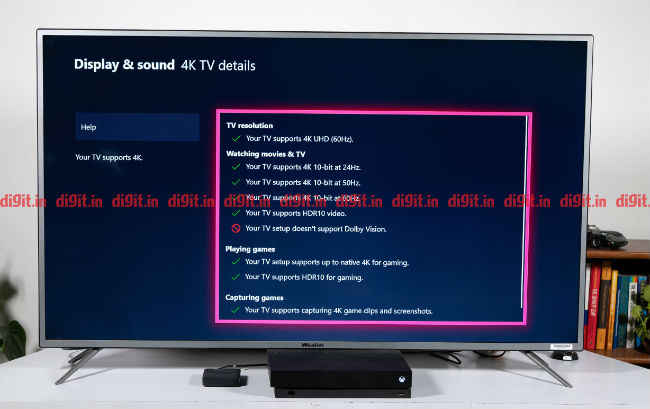
4K and HDR playback
Starting with 4K and HDR content, there is a very intense slow-motion fight sequence in the Netflix show Altered Carbon Season One Episode 7. The sequence starts out with a bunch of soldiers dressed in camouflage and proceed to a well lit abandoned warehouse. The slow-motion action soon becomes a fast-paced sequence leading to a lot of bloodshed. On the TV, the performance of the sequence is clean and honestly, quite enjoyable. In some of the dark sections, the panel does get reflective but not more than what we’ve seen with competing TVs.
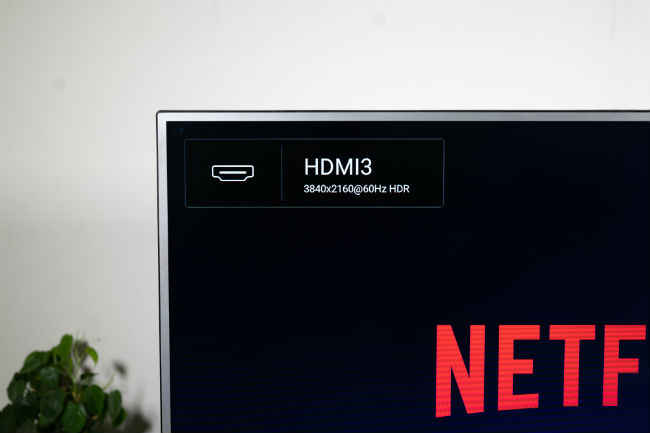
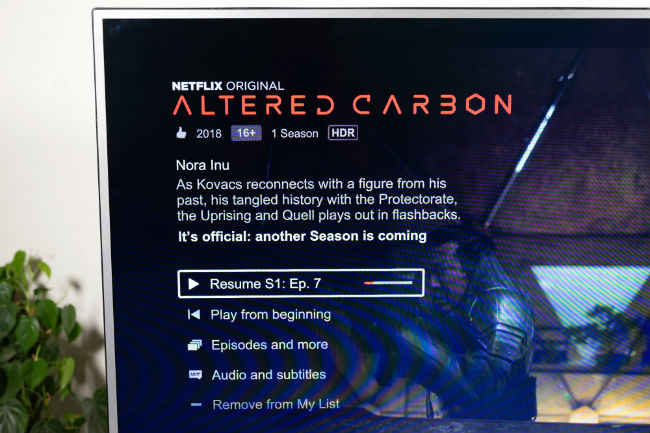
The Netflix film Polar which is also in HDR has a fight sequence towards the end where Mads Mikkelsen escapes. The antagonist has a bright red suit and most of the fight takes place in a dimly lit corridor with few light sources and a lot of fast-paced action. This is where you will notice a little bit of the uneven backlighting that we spoke about. A normal viewer may not be able to notice it but if you have seen this movie on a more expensive 4K HDR TV, you will be able to tell the difference.
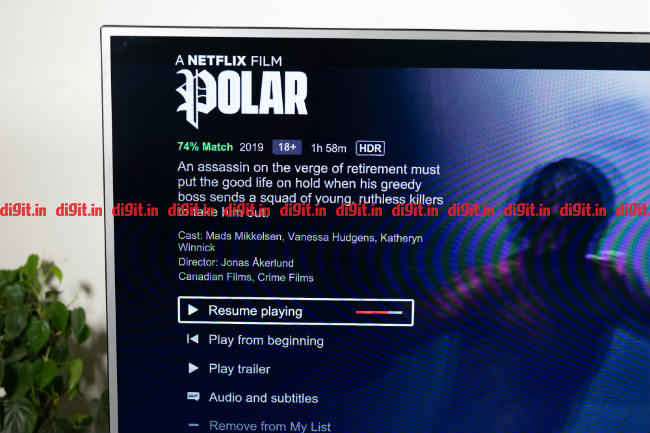
1080p content
Moving over to 1080p content, we played the opening sequence of Lord of the Rings: The Fellowship of the Ring. It has a nice lush green environment and the movie streams in FHD on Netflix. For some reason, the colours looked inaccurate on the display. The greens of the leaves looked dull and the overall image looked a little soft.
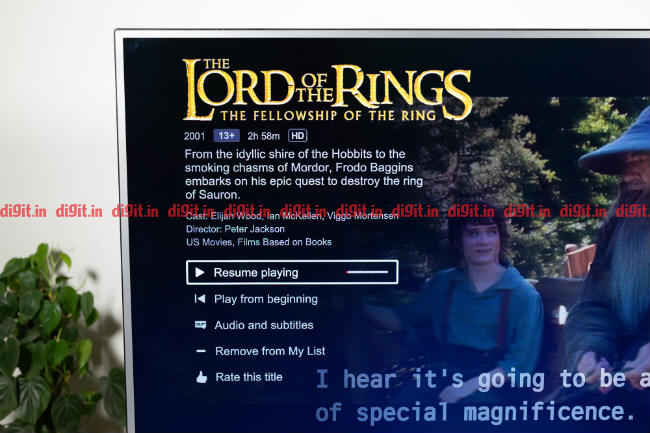
We tried to tweak the picture mode, but the lack of detailed manual controls for basic things like Brightness, Contrast, Colour, etc. left us with precious few options to tinker with. We could only change the HDR, 4K and picture preset and after much tinkering, we realized that the Vivid setting worked best for FHD and 4K HDR content. The other settings like standard made the blacks appear grey in dark sequences.
In Mission Impossible: Rogue Nation, another HD movie on Netflix, the motorcycle chase sequence had an interesting take on the preset colours. The skin tones of the actors looked more accurate in the Dynamic preset but the chase sequence looked more vibrant in Vivid. The Standard mode, in this case, is the one to go for as it tries to maintain the natural skin colour along without making the desert and highway look slightly vivid. It essentially ensures colours don’t pop too much.
Gaming
When it comes to gaming, we played Doom in 4K SDR and Gears of War 4 for 4K HDR evaluation. In Doom, for indoors sequences, the visuals of the game look detailed and the grey and silver interiors mixed with the demonic presence is immersive. The outdoors look a little oversaturated even when shifting to the Standard preset and it was in the soft preset that the wastelands of Doom looked playable. However, move to the indoors, and you will have to change to the standard preset to enjoy the game.
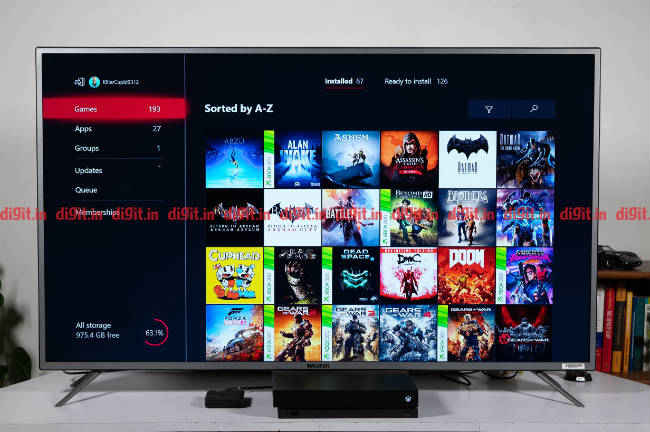
Gears of War, on the other hand, is best played in the Vivid preset. The game gives you the option to see how it looks in HDR and SDR in split screen and there are some sequences where the SDR performance makes the image look brighter and somewhere the HDR brings with it more details. Since the game has some sequences set in the dark, it is one where you will notice the uneven LED backlighting as well
Audio
This is where things get a little interesting. The Flipkart listing page for the TV says that the TV has 20W audio output but the official website says that the TV has 2 x 12W speakers (24W Output). So which one is correct? Well, we reached out to Weston and they told us that “The TV has speakers 2 x 12W and audio output is 2 x 8W. It’s a marketing gimmick.” So we know that the TV has an overall of 16W output similar to what we saw on the Mi TV 4 (read our review here). It is bewildering why the company wouldn’t go for the full 2 X 10W output considering that’s the industry standard for these TVs and the TV isn’t slim like the Mi TV so space clearly isn’t an issue.
The speakers are down firing, standard to what we’ve seen on other TVs. They get the job done if you will watch News or TV shows like Young Sheldon where the vocals are more pronounced. But switch to shows like Altered Carbon or movies like Mission Impossible, then you will feel the need for a soundbar at the least. When it comes to movies, not one preset worked well. In Altered Carbon, the dialogue sounded slightly muffled and sequences, where there was a sombre tune, was completely missed out on. Even the bangs and thuds of weapons and explosions in movies lacked bass.
If you will use this TV to watch regular TV first and the occasional movie, you should be fine. But for an immersive movie viewing experience, you need to invest in a pair of speakers or a soundbar
UI & Remote ccontrol
The Weston 55-inch 4K TV runs on Android 7 out of the box but this isn’t an Android TV. Here’s the thing – Android TV as the name suggests, allows apps to take advantage of the TV’s screen and form factor. AOSP, on the other hand, makes the content look bad on a big screen since it is running only mobile apps. Sadly, the Weston TV runs on AOSP and brings with it similar problems we’ve seen in the past. One more thing to note is that the UI is the same that we saw on the Shinco 55-inch TV. Place the two TVs side by side and hide the logo and you’d be hard pressed to identify one from the other. Identical twins with the UI is the best way to describe them.
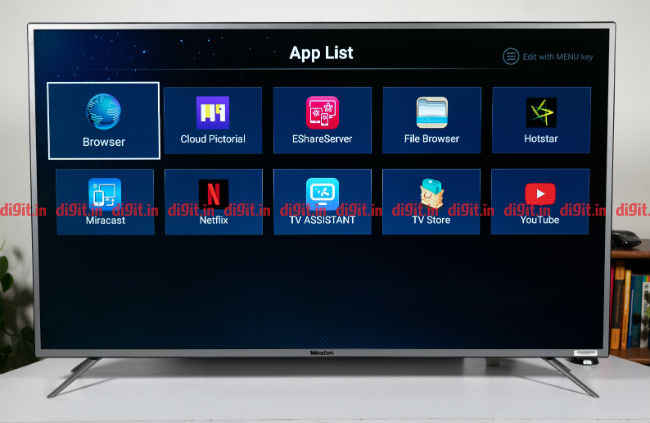
The AOSP UI on the Weston TV, streaming apps like Netflix and Prime Videos are only able to run their mobile versions and not the proper Android TV version. This makes navigating the UI of the app more cumbersome and also reduces the quality of the content playback. At least on the remote control of the Shinco TV, you get a QWERTY keyboard on the remote control, but here, you don’t get that and are left with a frustrating navigation experience.
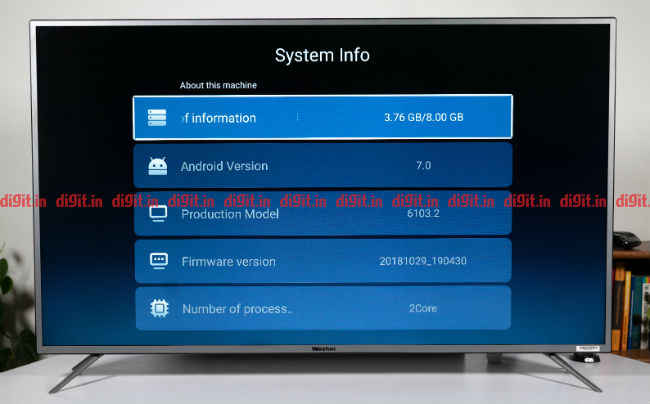
Overall, the UI is the weakest aspect of the TV. To make the most of it, you should use it with a 4K capable streaming stick.
Remote Control
The remote control of the TV has an all too familiar form factor and design. It looks a lot like the Kodak 50-inch TV’s remote we reviewed earlier and you can check out our review here. It has a traditional rectangular design with some smart functions right on top, the number pad below it, navigation and settings in the middle and playback controls at the bottom. The buttons on the remote control are rubbery and clicky and the power button lights up every time you hit any button on the remote. There is little to say about the remote apart from the fact that it is functional, needs to be pointed directly at the TV, has a traditional layout and gets the job done. There is a “mouse” control as well on the remote control and this is a God seed for navigating the UI at times but unlike the Daiwa or Shinco TV we reviewed, it doesn’t work like a want. You have to use the directional buttons to control it and that is a bummer.
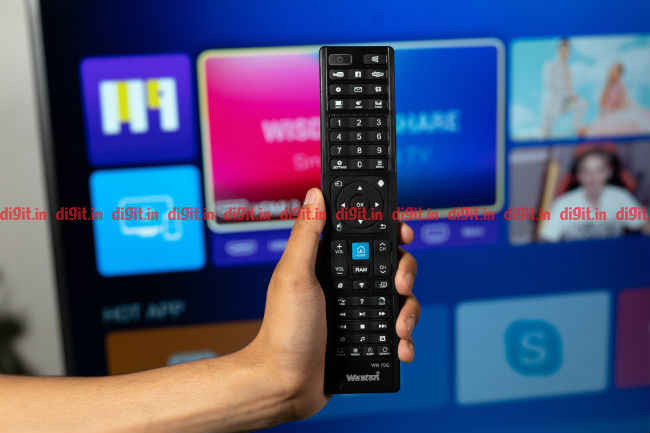
Bottom Line
The Shinco 55-inch 4K HDR TV with the same UI, front firing speakers and a good 4K HDR display is priced at Rs 36,990. The Weston brings with all the same features and is priced at Rs 59,990. So I wonder why would someone pay Rs 23,000 more for a homogenous product. For around 35k, you can get TVs from brands like TCL, iFFALCON, Xiaomi, Thomson and more. So if the screen size is something you want, you can get similar performance from a much cheaper TV like the Shinco 55-inch 4K HDR TV we reviewed earlier. You could use the extra cash to get a 4K streaming stick like the Fire TV stick 4K to enjoy a better smart TV experience and even a soundbar to enhance the audio from the TV. Under 60k you can get 50-inch 4K TVs from the likes of LG, Panasonic, Samsung and more, bringing you a better panel. In short, there are better value for money TVs to choose at the 60k price point.
[ad_2]
Source link

